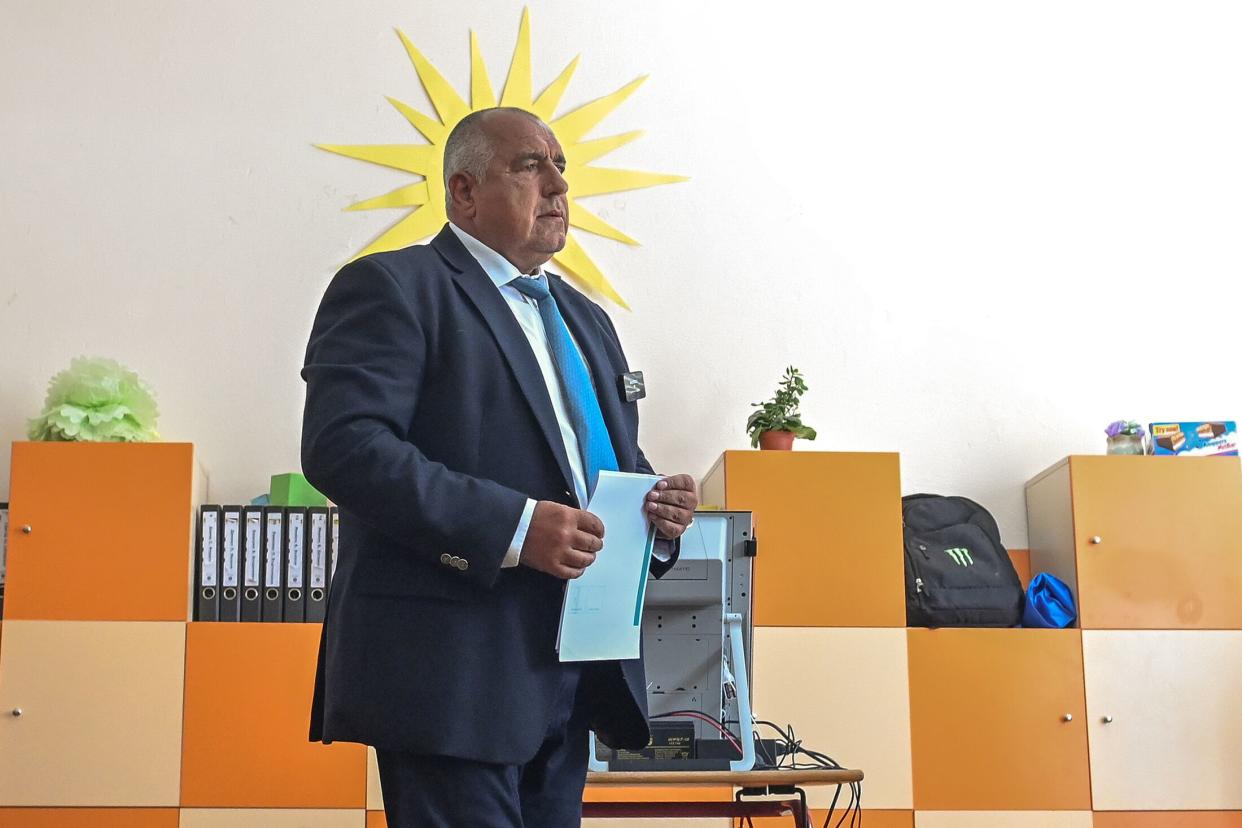Bulgaria’s Borissov Wins Vote But Lacks Clear Path to Power

(Bloomberg) -- Bulgaria’s powerful former prime minister Boyko Borissov won the country’s sixth election in just over three years, but will fall short of a majority needed to end a political deadlock.
Most Read from Bloomberg
Russia Is Sending Young Africans to Die in Its War Against Ukraine
Investment Bank Moelis Probes Incident After Video of Employee Appearing to Punch Woman
Macron Gambles on Snap French Election in Bid to Stop Le Pen
New York Fed Is Losing Talent and ‘Street Cred’ Under John Williams
Stocks Eke Out Gains in Fed Run-Up as Euro Falls: Markets Wrap
Borissov’s conservative Gerb party secured 23% of the vote on Sunday, according to preliminary results, with 51% of the ballots counted. His main challenger, a bloc of parties campaigning on an anti-corruption platform and led by another former premier, Kiril Petkov, followed with about 15%, the same result as two other competitors.
The European Union’s poorest nation has struggled to put an end to a stalemate since 2021, when Borissov left office after more than a decade of dominating Bulgarian politics in the midst of anti-corruption protests.
The country of 6.5 million has since been governed by a string of failed coalitions and interim administrations, which have hobbled efforts to confront the region’s energy crisis and steer Bulgaria into the euro area.
The last coalition was a tenuous alliance between Borissov’s and Petkov’s factions that fell apart after less than a year because of infighting over filling administrative appointments and reforms measures.
Borissov has a narrow path to return to power for a fourth term. One option would be an alliance with a controversial power broker sanctioned for corruption, Delyan Peevski, who leads the Movement for Rights and Freedoms — but he will need at least one more party for majority.
“I don’t see how a government will be formed,” Borissov said Sunday after he cast his vote. “The numbers don’t add up.”
Seven parties secured seats in parliament in Sofia, according to the results. Peevski’s Movement for Rights and Freedoms has about 15%, the same as Revival, nationalists that want Bulgaria to exit the North Atlantic Treaty Organization.
Revival’s result is nearly six times higher than three years ago, in the wake of the political crisis. Greatness, another nationalist faction and a political newcomer, also made it into parliament.
The turmoil has helped to postpone Bulgaria’s goal to enter the euro area and delayed EU recovery funding. The war in Ukraine has added to the upheaval, with Bulgaria abutting the Black Sea, where Russia has attacked Ukrainian forces and disrupted trade.
Borissov will be the first to receive a mandate to form a government from President Rumen Radev, and he didn’t rule out running for prime minister himself.
If he fails to secure support, the second-biggest party will have the chance. Radev — a NATO-trained general known for his Russia-friendly stances — will have a third option to pick a party to try form a government before he will be obliged to schedule a new election.
(Updates with preliminary results from second paragraph, Borissov’s comments in 7th.)
Most Read from Bloomberg Businessweek
As Banking Moves Online, Branch Design Takes Cues From Starbucks
Legacy Airlines Are Thriving With Ultracheap Fares, Crushing Budget Carriers
Sam Altman Was Bending the World to His Will Long Before OpenAI
David Sacks Tried the 2024 Alternatives. Now He’s All-In on Trump
©2024 Bloomberg L.P.



